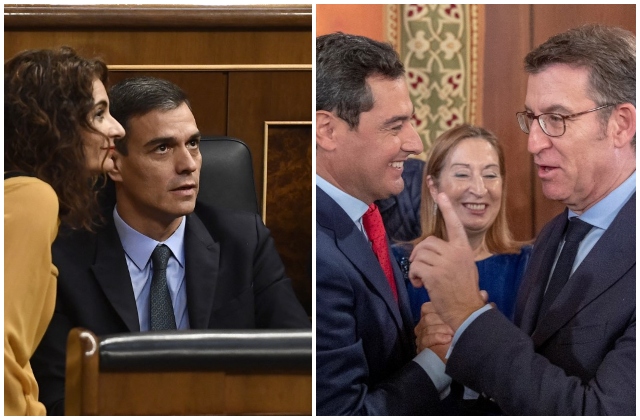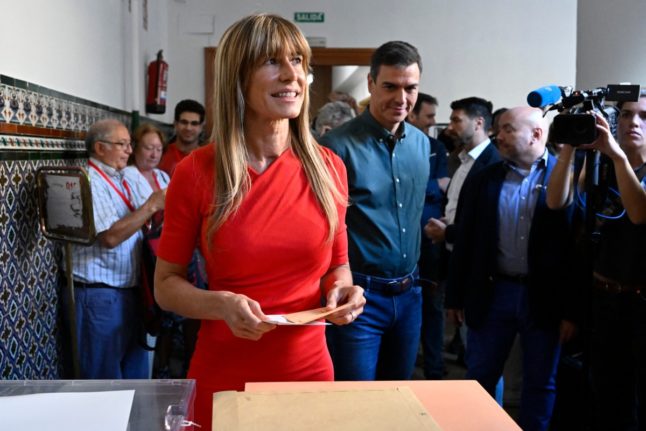On the back burner for months, the tax issue hit the headlines last week after the leader of the southern Andalusia region decided to axe wealth tax and lower income tax in a bid to attract wealthy taxpayers.
“We were a tax hellhole but now we’re the region with the second lowest taxes in Spain,” boasted Juanma Moreno of the right-wing opposition Popular Party (PP) — his region trailing only Madrid, which is also held by the PP.
As one of the Western world’s most decentralised nations, Spain is divided into 17 regions, whose governments have considerable autonomy and are responsible for budget management.
Moreno’s remarks opened the floodgates, with many other PP-run regions announcing cuts, including Murcia, which slashed income tax, and Galicia, which is rolling back its wealth tax.
‘Welcome to paradise’
This flurry of announcements was hailed by top figures within the PP, among them the party’s rising star, Madrid leader Isabel Díaz Ayuso.
“Welcome to paradise,” tweeted this champion of the tax war, who last year repealed some 15 local levies in her region.
But the move has drummed up a storm of criticism within the government of Socialist Prime Minister Pedro Sánchez, which has denounced it as economic populism ahead of regional elections in May and a general election expected in late 2023.
And it has raised concerns about the impact of such measures on public service funding.
Economy Minister Nadia Calviño didn’t mince her words, denouncing such moves as introducing an “irresponsible, incoherent and destructive dynamic that would affect the whole country” and demanding they be reversed.
And Budget Minister María Jesús Montero warned it was “dangerous” to create “tax havens” within Spain.
Even Sánchez weighed in, denouncing what he called “tax gifts to the minority” and pleading for “responsible tax policies”.
“There must be tax reforms that guarantee that those who have more contribute more to the public purse in order to have a much stronger welfare state,” he said.
Tax harmonisation
On Thursday, the government said it would slap an “exceptional” tax on the country’s richest to help pay for measures aimed at easing the impact of spiralling inflation.
And it is in favour of a greater “tax harmonisation” between the regions.
But it’s a sensitive subject in Spain where the Constitution requires a certain solidarity between the regions while also guaranteeing their robust fiscal and financial autonomy on top of extending them wide-ranging powers over issues such as health and education.
“If some regions are lowering taxes, it’s because legally they can,” said Stella Raventos, head of AEDAF, the Spanish Association of Tax Advisors.
“Not all regions have the same policies because they don’t have the same problems.”
But given the risks inherent in a wholesale policy of slashing duties, “a tax harmonisation policy could be a good idea”, as long as it was kept within “reasonable levels” and with upper limits, she said.
For the PP, any such move would be crossing a red line.
If there is any government “interference”, there will be “a robust legal response”, Andalusia’s Moreno vowed, warning against any move to “centralise” fiscal policy.
For now, the government has no plans to encroach on the regions’ autonomy — although it is determined to fight any “fiscal dumping” within the framework of a huge reform package aimed at making Spain’s tax system more just and progressive.
Details of the tax reform, which is required by Brussels in exchange for aid channelled through its post-pandemic recovery scheme, will be released early next year.




 Please whitelist us to continue reading.
Please whitelist us to continue reading.
Member comments